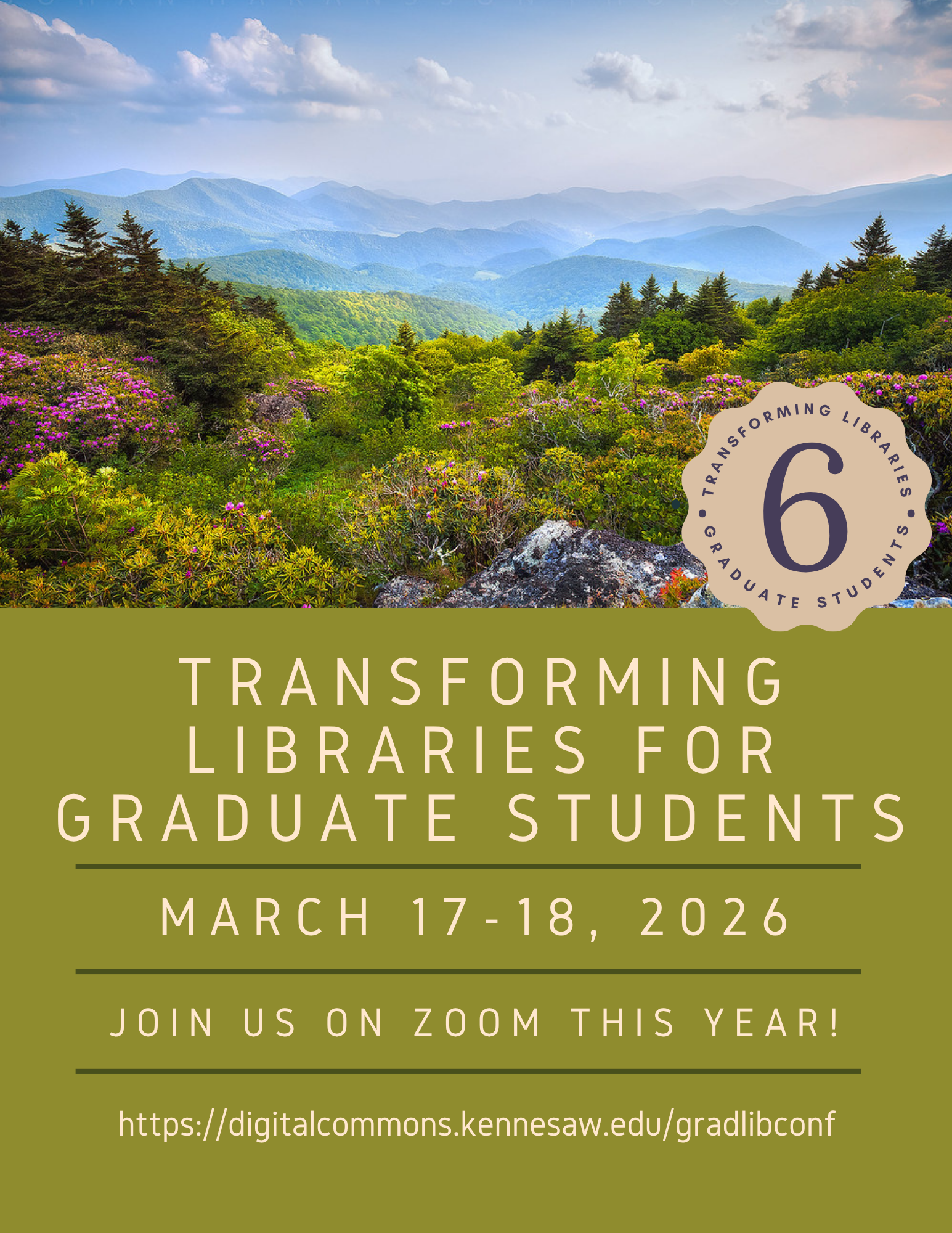Start Date
3-16-2022 3:00 PM
End Date
3-16-2022 4:00 PM
Keywords
Evidence Synthesis, Evidence Synthesis Institute, Systematic Review, Graduate Students, Program Comparison
Description of Proposal
Evidence synthesis (ES) is the process of systematically collecting studies and synthesizing the findings using strict protocols and criteria. Common examples of ES include systematic reviews, meta-analyses, and scoping reviews. While ES has been commonplace in health sciences for many years, it has recently gained traction in non-health sciences fields such as the social sciences. In response to this growing trend, the IMLS-funded Evidence Synthesis Institute was created to offer librarians in-depth training on how to best provide ES support to disciplines outside the health sciences.
This presentation draws on the insights of two liaison librarians who work at public R1 universities and who recently attended the Evidence Synthesis Institute. After completing the Institute and gaining a deeper understanding of ES, both librarians have grappled with the best way to implement an ES service in their organizations. The presenters will share two different approaches: one will discuss their word-of-mouth approach to those in their liaison areas, and the other will discuss their role in building a brand new ES program that serves many disciplines. By comparing and contrasting their programs, the presenters will share practical insights into the workflows, relationships, and considerations of providing ES support. Some topics that will be explored include the type of service model (ad hoc versus institutional), getting buy-in from library staff, training, time management, and promotion of the service. The discussion will focus on graduate students in particular and offer advice on how librarians can provide ES support to a contingency that is both researcher and student. The presenters will discuss how they have managed to strike a balance between guiding graduate students on their ES projects while leaving room for graduate students to learn the process themselves.
This session will be of interest to librarians who are excited to learn about a new research area and interested in how to support their users, library staff who lack institutional infrastructure and find themselves at an impasse when trying to identify where they fit in this new functional area, and for administrators responsible for setting strategic directions.
Striking a Balance: Evidence Synthesis Support for Graduate Students
Evidence synthesis (ES) is the process of systematically collecting studies and synthesizing the findings using strict protocols and criteria. Common examples of ES include systematic reviews, meta-analyses, and scoping reviews. While ES has been commonplace in health sciences for many years, it has recently gained traction in non-health sciences fields such as the social sciences. In response to this growing trend, the IMLS-funded Evidence Synthesis Institute was created to offer librarians in-depth training on how to best provide ES support to disciplines outside the health sciences.
This presentation draws on the insights of two liaison librarians who work at public R1 universities and who recently attended the Evidence Synthesis Institute. After completing the Institute and gaining a deeper understanding of ES, both librarians have grappled with the best way to implement an ES service in their organizations. The presenters will share two different approaches: one will discuss their word-of-mouth approach to those in their liaison areas, and the other will discuss their role in building a brand new ES program that serves many disciplines. By comparing and contrasting their programs, the presenters will share practical insights into the workflows, relationships, and considerations of providing ES support. Some topics that will be explored include the type of service model (ad hoc versus institutional), getting buy-in from library staff, training, time management, and promotion of the service. The discussion will focus on graduate students in particular and offer advice on how librarians can provide ES support to a contingency that is both researcher and student. The presenters will discuss how they have managed to strike a balance between guiding graduate students on their ES projects while leaving room for graduate students to learn the process themselves.
This session will be of interest to librarians who are excited to learn about a new research area and interested in how to support their users, library staff who lack institutional infrastructure and find themselves at an impasse when trying to identify where they fit in this new functional area, and for administrators responsible for setting strategic directions.



What takeaways will attendees learn from your session?